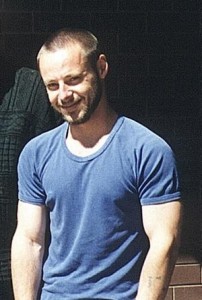by Jeff Fleischer
(Mother Jones, August 24, 2004)
David Hicks (Photo by Sydney Morning Herald)
After years of imprisonment at Guantanamo Bay, four detainees are scheduled for preliminary hearings Tuesday, the first time any of the Guantanamo prisoners will stand charged before the controversial military tribunals.
The four men — Yemenis Salim Ahmed Hamdan and Ali Hamza Ahmad Sulayman, Sudanese national Ibrahim Ahmed Mahmoud al Qosi, and Australian David Hicks – are the only prisoners charged so far among the roughly 580 Guantanamo detainees. None of the four face the death penalty. Each has been classified as an “enemy combatant,” a category the Bush administration has used to argue that the prisoner rights mandated under the Geneva Conventions do not apply in their cases.
The “enemy combatant” label is just one of the many facets of the tribunals that concern civil-rights groups. As the Sydney Morning Herald explains:
“At the crux of the complaints about this experiment is that, unlike a court martial, its decisions cannot be appealed to a civilian court. These decisions include whether evidence that the defense alleges is obtained by torture will be admissible in the court. But the deeper issue is that the commission, according to Hicks’s defense lawyers, including his military lawyer, Major Michael Mori, is a dangerously flawed legal proceeding.”
In an attempt to allay those fears, the Pentagon is allowing more than 60 journalists to observe the proceedings, along with representatives of civil-rights groups like Human Rights Watch, Amnesty International and the American Civil Liberties Union. Anthony Romero of the ACLU is keeping a blog on the proceedings, including the briefings he and the other observers received Monday. His reaction so far is skeptical:
“Two themes have come out of this first day of briefings. One is the ambivalence that the military has toward NGO participants and even the broader media. They want to give us access, but not too much access. They want to be transparent, but the transparency can’t go too far. For instance, [Tuesday], members of the media will travel to Camp Delta, but unfortunately the NGO participants were told that we cannot attend that tour, even though we have been given full security clearance to sit in the commission room on Tuesday.
“The second theme is that there is a great desire to show how the commissions and the tribunals are fair and just, and how they mirror the American system of justice. But yet, when you compare the rules for both the commissions and the tribunals, you find serious departures from either military justice proceedings or regular criminal proceedings. For instance, under the Combatant Status Review tribunals, which are ‘administrative’ we were told, each detainee is assigned a personal representative who is not a legal representative and whose conversations with the detainee are not confidential in any way. In fact, this personal representative is able to provide both exculpatory and inculpatory evidence that he gleans in his ‘personal representation’ of the detainee.”
As the Associated Press reports, the cases beginning this week underscore the challenges facing the detainees. With the tribunals not subject to an appeals process, a good defense is critical – and numerous problems have emerged on that front:
“One defense attorney hasn’t seen his client in four months because of a government delay in giving clearance to a translator. Another defense lawyer has withdrawn from the case after accepting another job, leaving her client with no representation. Others say the broad restrictions, which include the military’s right to monitor conversations between attorneys and clients, will make it nearly impossible to win their cases.”
Considering how long it has taken to charge Hamdan, Sulayman, al Qosi and Hicks – and the many valid concerns about the tribunal – these first Guantanamo hearings will be important benchmarks, and will be closely scrutinized. So far, it appears that scrutiny will find plenty of problems.
Tags: daily mojo, detainees, guantanamo, jeff fleischer, military tribunals, mother jones